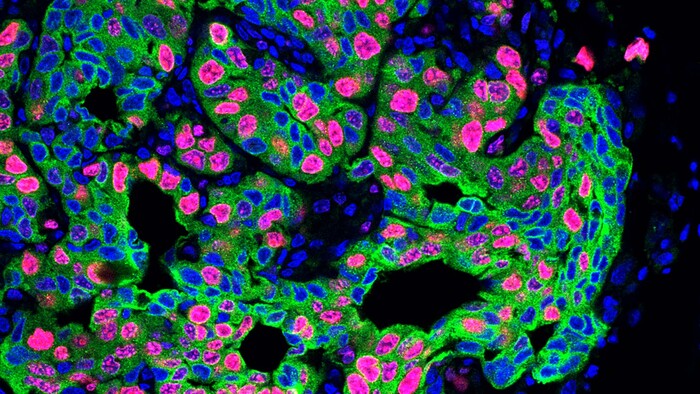It is known that chronic stress is not good for health, increasing the risk of heart disease and stroke, and also fueling the spread of tumors, but the reason for this mechanism had until now remained a mystery: now, a study published in the journal Cancer Cell and led by the American Cold Spring Harbor Laboratory understood that stress induces white blood cells called neutrophils, which normally defend the body from bacterial and fungal infections, to build sticky structures similar to cobwebs, which make tissues more susceptible to metastasis.
The discovery opens the way to new therapies capable of slowing down or even stopping the spread of tumors within the body in its infancy.
The researchers, whose lead author was Xue-Yan He (now at the University of Washington), were able to understand the mechanism by mimicking chronic stress in mice with cancer.
They were thus able to observe that metastases increased up to four times in stressed animals.
The cause lies in stress hormones, called glucocorticoids, which act on neutrophils, pushing them to form these sort of 'traps' for tumor cells that help them spread to other tissues in the body.
Confirmation of the key role of neutrophils came when the authors of the study tried to remove them from mice or administer a drug that destroys the webs formed by these white blood cells: “By removing neutrophils from the equation – says He – the stressed mice did not develop more metastases”.
Furthermore, it appears that stress causes damage even in the absence of tumors.
In healthy mice, it also induced neutrophils to build their sticky networks: “It's as if you prepare the tissues to welcome the cancer,” explains Mikala Egeblad (now at Johns Hopkins University), who coordinated the study together with Linda Van Aelst .
According to the researchers, therefore, the implication is clear, if surprising: “Stress reduction – says Van Aelst – should be a fundamental component of cancer treatment and prevention”.
Reproduction reserved © Copyright ANSA

